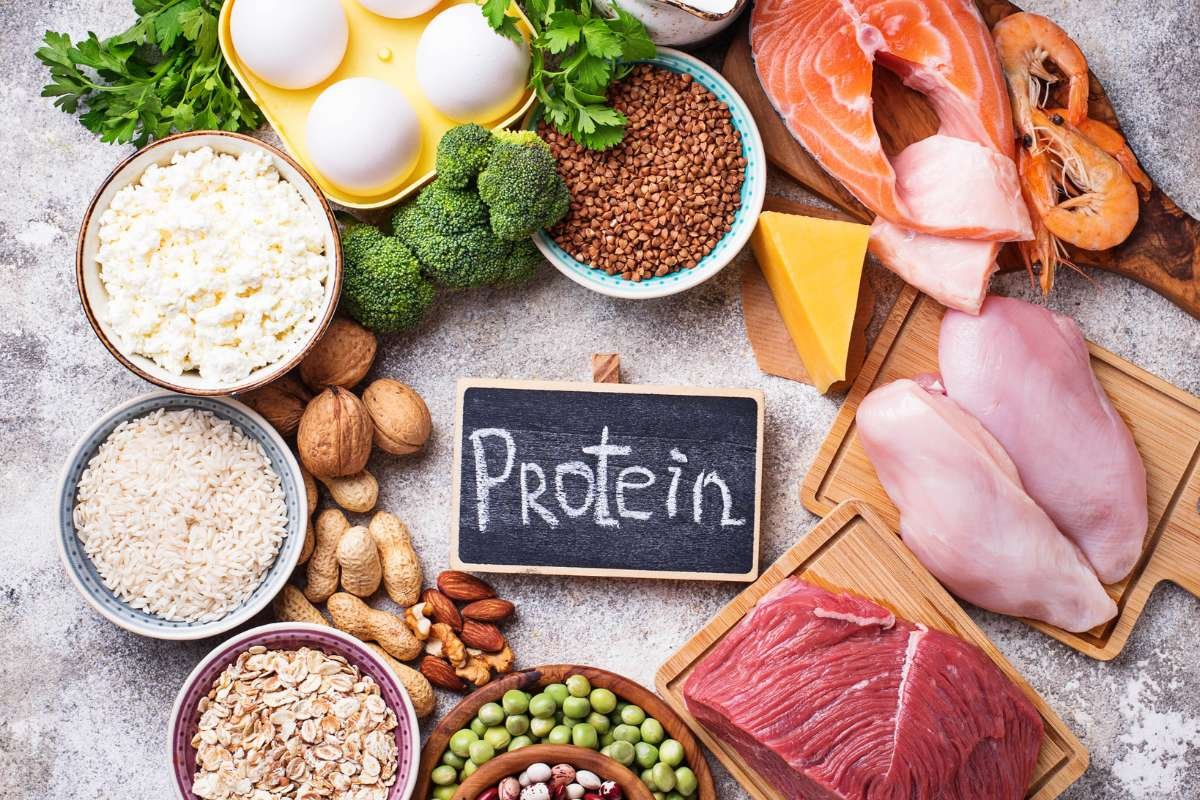Protein is one of the most vital macronutrients, which your body needs in relatively large quantities. It promotes the growth of muscles, helps with tissue repair, balances hormones, and regulates your immune system. Still, when people ask questions about health or fitness, the most commonly asked question is: How Much Protein Per Day Do I Need? The answer is not the same for everyone and depends on various parameters, including age, activity level, health goals, and lifestyle practices.
In this article, we’ll calculate your protein needs, understand the function of protein in the body, and share practical tips on how to meet your daily protein needs.
Why Protein Matters
Before answering How Much Protein Per Day Do I Need, it’s important to understand why protein is so vital. Unlike carbohydrates and fats, protein is made up of amino acids, often called the “building blocks of life.” Your body uses these amino acids to:
- Build and repair muscles, skin, and tissues.
- Support enzymes and hormone production.
- Strengthen the immune system.
- Promote satiety and weight management.
Without enough protein, you may experience fatigue, muscle loss, weak immunity, or slow recovery after workouts.
General Protein Recommendations
Nutrition experts often suggest that the average adult should aim for 0.8 grams of protein per kilogram of body weight. For a 70 kg (154 lb) individual, this equals about 56 grams of protein daily. However, this recommendation is considered the minimum to prevent deficiency, not necessarily the optimal amount for active or health-conscious individuals.
Factors That Influence Protein Needs
When asking, How Much Protein Per Day Do I Need, remember that your answer is influenced by several factors:
1. Body Weight and Composition

Larger individuals and those with more muscle mass typically need higher protein intake.
2. Activity Level
- Sedentary lifestyle: 0.8–1 g/kg body weight.
- Moderate activity: 1.2–1.6 g/kg body weight.
- Intense training/athletes: 1.6–2.2 g/kg body weight.
3. Age
As we age, our ability to process protein decreases. Older adults may require 1–1.2 g/kg body weight to maintain muscle mass and prevent sarcopenia (age-related muscle loss).
4. Health Goals
- Weight loss: Higher protein intake can curb cravings and preserve muscle mass.
- Muscle gain: Athletes and bodybuilders often aim for 1.6–2.2 g/kg body weight.
- Medical conditions: People recovering from surgery or dealing with chronic illnesses may need additional protein to heal and support immune function.
Protein for Weight Management
Protein plays a unique role in weight management. It helps reduce hunger by lowering ghrelin (the hunger hormone) and increasing satiety hormones. Studies show that people who eat a higher-protein diet tend to consume fewer calories overall.
For those asking, How Much Protein Per Day Do I Need to lose weight—the sweet spot often lies between 25–30% of daily calories from protein. For a 2,000-calorie diet, that’s about 125–150 grams of protein daily.
Best Sources of Protein
Not all protein sources are equal. High-quality proteins contain all nine essential amino acids. Here are some excellent options:
- Animal-based proteins: Chicken, turkey, fish, eggs, beef, Greek yogurt, cottage cheese.
- Plant-based proteins: Lentils, beans, quinoa, tofu, tempeh, edamame, chickpeas.
- Protein supplements: Whey protein, casein, soy protein, pea protein powders.
A balanced approach—combining both plant and animal proteins—ensures diversity in nutrients and amino acids.
How to Distribute Protein Throughout the Day

Your body absorbs protein best when intake is spread out evenly. Instead of loading up on protein in one meal, aim to include a source in each meal and snack.
Example daily distribution for someone needing 100 grams:
- Breakfast: Omelet with spinach + Greek yogurt (25 g)
- Lunch: Grilled chicken with quinoa and veggies (30 g)
- Snack: Protein shake or hummus with whole-grain crackers (20 g)
- Dinner: Salmon with sweet potatoes and broccoli (25 g)
Common Myths About Protein
“Too much protein damages your kidneys.”
– In healthy individuals, moderate to high protein intake does not harm kidney function.
- “Vegetarians can’t get enough protein.”
– With careful planning, plant-based diets can easily meet protein needs. - “You can’t absorb more than 30 grams per meal.”
– While muscle protein synthesis peaks around 20–30 g, excess protein is still used by the body for other functions.
Practical Tips to Increase Protein Intake

- Add eggs or Greek yogurt to breakfast.
- Snack on roasted chickpeas, nuts, or jerky.
- Choose protein-rich grains like quinoa instead of rice.
- Use protein powder in smoothies or oatmeal.
- Double up on legumes in soups and salads.
Conclusion:
Protein is an important component of a balanced diet and plays a crucial role in muscle health, recovery, and overall health. Regardless of whether your goal is to maintain your weight, develop strength, or remain healthy, knowing your desired protein needs can make an impact.
So, How Much Protein Per Day Do I Need? It can vary based on weight, activity level, and health goals, but most active adults will benefit from aiming for a protein intake between 1.2 – 2.0 g/kg of body weight. Remember to choose high-quality protein, to evenly distribute your protein intake throughout the day, and to be flexible with your body’s protein needs.
Once you understand your personal protein needs, you will be better fueling your body, feeling strong, and setting yourself up for long-term health.







